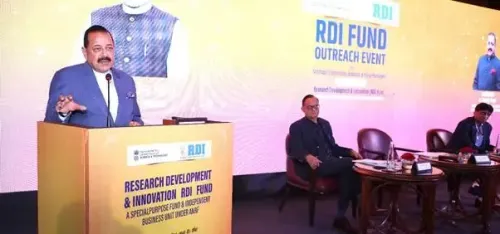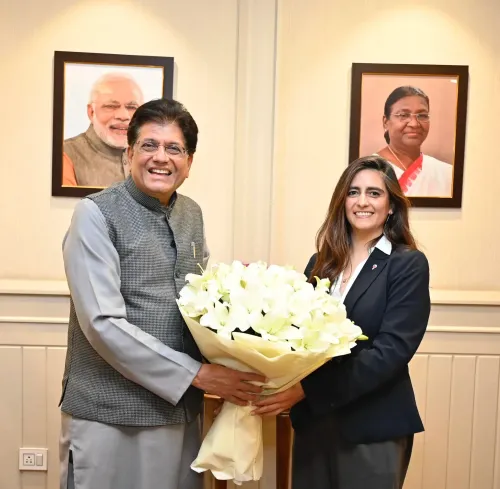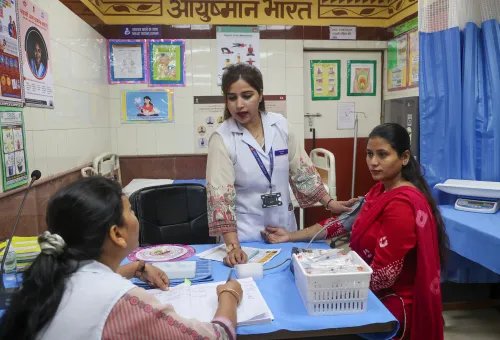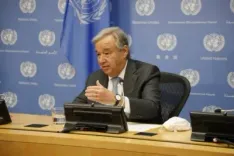How Can the Global South Influence the Future of Climate Governance?
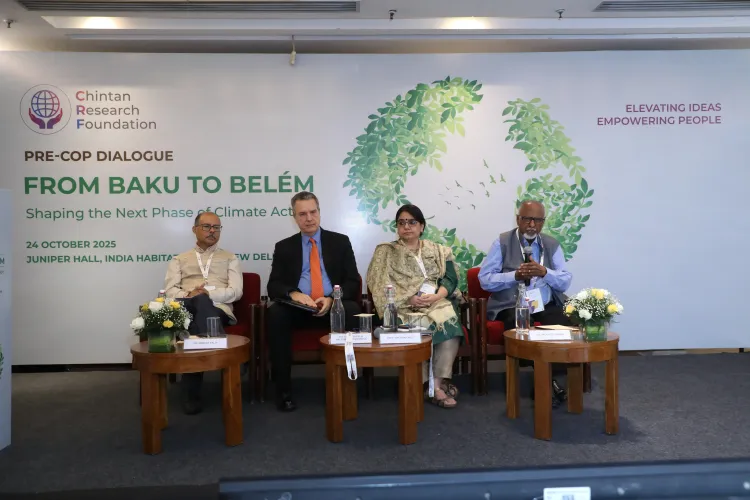
Synopsis
Key Takeaways
- The Global South must reclaim its agency in climate governance.
- Collaboration between the Global North and Global South is essential for achieving climate goals.
- Private sector financing is key to effective climate action.
- Addressing financial disparities is crucial for equitable climate solutions.
- Increased civil society engagement will strengthen climate policy processes.
New Delhi, Oct 25 (IABNS) In the face of escalating climate challenges, experts assert that the Global South must step forward to influence the forthcoming phase of climate governance.
During a Pre-COP Dialogue entitled “From Baku to Belém: Shaping the Next Phase of Climate Action” at the India Habitat Centre, New Delhi, organized by the independent think tank Chintan Research Foundation (CRF), prominent climate experts, policymakers, and practitioners engaged in discussions aimed at propelling the global climate action agenda, with a particular focus on the upcoming Conference of Parties (COP) 30 in Belém, Brazil, scheduled for November.
The event emphasized the need to assess progress since the Paris Agreement, identify gaps in climate governance, and establish expectations to improve climate action within the UNFCCC framework.
Shishir Priyadarshi, President of CRF, emphasized the necessity for the Global South to reclaim its role in formulating the next phase of climate governance.
“The moment has arrived to focus on reflection rather than merely navigation. We must be transparent about our achievements and shortcomings. Transitioning from goal-setting to goal-enabling is essential, necessitating collaboration between the Global North and the Global South,” stated Priyadarshi.
He outlined three key expectations for COP 30: the operationalization of the New Collective Quantified Goal (NCQG), enhancement of adaptation and loss and damage mechanisms, and strengthening accountability.
These solutions should be economically viable, technologically inclusive, and socially just, he added.
Dr. Pooja Sehbag, Research Associate at CRF, reiterated the urgency of the current climate crisis and the necessity to review global initiatives. She pointed out the discrepancies between anticipated and realized goals from past COPs, highlighting a global trend of collective underperformance.
Dr. Prodipto Ghosh, Distinguished Fellow at The Energy Resources Institute (TERI), provided a historical context for climate negotiations and underscored India's potential in leading climate initiatives.
“Developing nations must set a precedent. China has approached climate change as both an economic and technological challenge, investing significantly in R&D to advance new technologies. It currently leads globally in solar energy deployment. India can emulate China to become a key player in this transition,” Ghosh remarked.
Prof. Arun Sharma, Group Head for Sustainability and Climate Change at Adani Group, highlighted the crucial role of the private sector in accelerating ambitious climate action.
“Mitigation will largely rely on private sector financing -- it demands effective business models for fund deployment and technology sharing. At Belém, we must acknowledge the limitations of the COP process and prioritize enhancing business models for climate action,” Sharma stated.
“Addressing financial disparities is vital. India and China still face notable differences in total electricity generation. India must concentrate on electrification and last-mile decarbonization, particularly emphasizing green hydrogen,” he added.
Kenneth Felix Haczynski da Nóbrega, Brazilian Ambassador to India, emphasized Brazil's commitment to fostering greater civil society participation in climate policy discussions.
“COP 30 will aim to bring the climate change challenge closer to civil society globally. We require increased B2B involvement at COP 30, akin to the engagement witnessed at G20 and BRICS,” da Nóbrega noted.
The dialogue highlighted the significance of collaborative climate action, driven by civil society engagement, equitable climate financing, and critical assessments of policy effectiveness.


